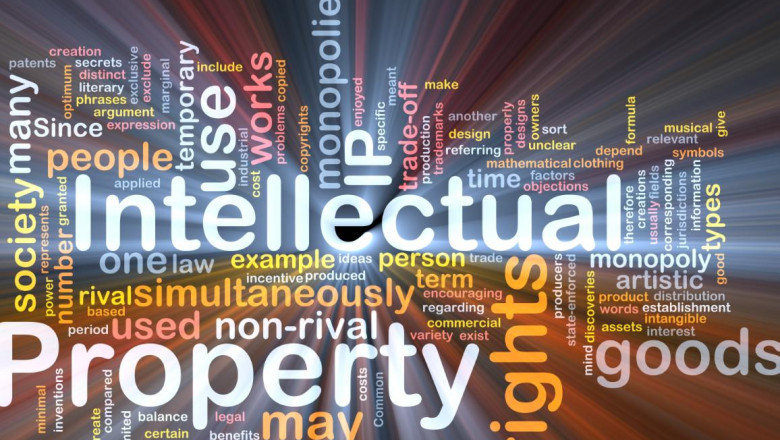views
Importance of Intellectual Property Protection in Software Industry
In today's digital world, software is one of the most valuable commercial assets for many businesses. However, developing and maintaining software requires huge investments of time, money and human resources. Without adequate legal protection of intellectual property rights, software companies would have little incentive to invest in innovative solutions. Intellectual property protection gives software developers ownership over their original works and prevents unauthorized copying and distribution. This allows them to earn returns on their investments through sales and licensing. It also promotes further innovation in the industry by encouraging competition.
Tools for Tracking and Managing Copyrights and Patents
Software developers rely on intellectual property management software to systematically track ownership and usage rights. These tools help record information related to copyrights, trademarks, patents and other IP assets. They maintain digital records of documentation, assignment records, licensing agreements and other legal documents. This ensures all intellectual property is accounted for and organized in one central database. The software alerts users about pending renewals, expirations and other important dates. It also facilitates easier reporting of IP portfolios. Some advanced solutions integrate with accounting systems to track revenue streams from licensed assets. Overall, IP management platforms bring efficiency and transparency to intellectual property administration.
Features for Automating Licensing and Royalty Processes
Intellectual Property Software automates many routine licensing and royalty management tasks. They provide web interfaces to streamline licensing requests from potential customers. Standardized license agreements can be generated with pre-defined terms and conditions. Users can track license fulfillment and handle renewals proactively. Royalty calculations are automated based on configured rules. Statements are produced periodically showing royalties accrued and paid against each license. Automation eliminates manual errors and brings accuracy to financial reporting. It also simplifies auditing of accounts by external parties. Some solutions integrate payment gateways to directly process and disburse royalty amounts owed.
Securing Intellectual Assets with Watermarking and Tracking Capabilities
Besides administrative features, IP management solutions offer technical capabilities to secure copyrighted works. Embedded digital watermarks hide identification codes within software, images, audio or video files. This enables tracing infringement by extracting watermark data from illegally distributed copies. Some tools allow active detection and monitoring of copyrighted content usage online. They scan registered domains and public repositories to identify unauthorized distribution. Fingerprinting algorithms extract characteristics of digital works to match against suspect copies without access to original files. This helps catch pirates even after watermarks are removed. Overall, these technical protections deter misuse and strengthen legal recourse against infringement.
Customizable Reporting and Analytics Dashboards
Sophisticated IP software provides rich analytics and reporting functionalities. Managers can generate custom reports on the performance of individual patents, brands or software products. Usage patterns over time may indicate need for upgrades or new product development. Location-specific insights help target marketing. Comprehensive portfolio reports assess the total brand value or market coverage provided. Interactive dashboards visualize key metrics like new applications filed, licenses issued, territories covered etc. Drilling down reveals additional details. Automated alerts call out under-performing or at-risk assets. Such timely actionable intelligence aids strategic planning and resource allocation for maximizing returns.
Integrations for Holistic Intellectual Property Management
Modern IP platforms integrate seamlessly with other business systems. Connections to accounting solutions sync financial data, facilitating expense tracking and profitability analysis of IP assets. CRM integrations maintain customer relationships more effectively. Linkages with CMS and documentation management systems ensure legal documents remain secure and approved versions are accessible to relevant teams. Integrations with e-commerce platforms allow online licensing of copyrighted works. Connectivity to procurement modules aids contract and vendor management related to IP intermediary services. An open architecture supports customizations as per unique business needs. Comprehensive yet flexible, such connected platforms deliver unified intellectual property lifecycle management.
Compliance with Global Regulations
International software firms need IP tools adhering to varying statutory norms across regions. Localization capabilities present data in local languages to address global markets. Regulatory updates keep the solution vetted in compliance with latest patent, trademark and copyright laws worldwide. Multi-currency support handles international payments and currency conversions accurately. Configurable workflows simplify adherence to jurisdiction-specific processes. Region-specific classification systems organize IP assets as per local standards. Cloud-hosted multi-tenant SaaS models facilitate efficient administration of global intellectual property portfolios from a central instance. Mobility features enable remote work alignment without compromising security or compliance.
Importance of Selecting a Intellectual Property Software
Given sensitive nature of IP data, only trusted solution providers should be considered. Expertise in specific industry domains adds valuable contextual knowledge. Robust security infrastructure employing encryption, authentication and access controls safeguards confidential information. Regulatory certifications assure highest quality and safety standards are followed.
Choose your preferred language-
About Author-
Money Singh is a seasoned content writer with over four years of experience in the market research sector. Known for her strong SEO background, she skillfully blends SEO strategies with insightful content. Her expertise spans various industries, including food and beverages, biotechnology, chemical and materials, defense and aerospace, consumer goods, etc. (https://www.linkedin.com/in/money-singh-590844163)






















Comments
0 comment